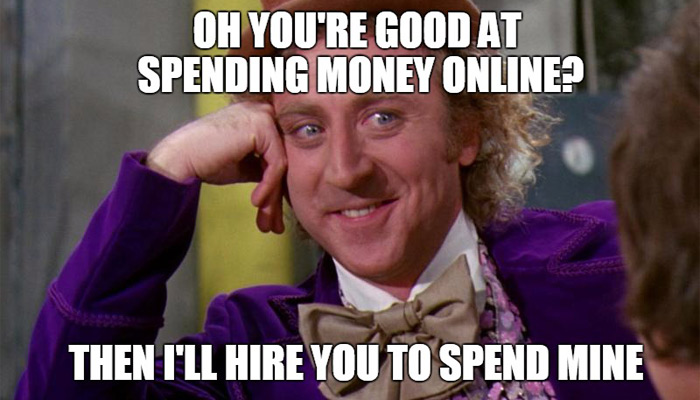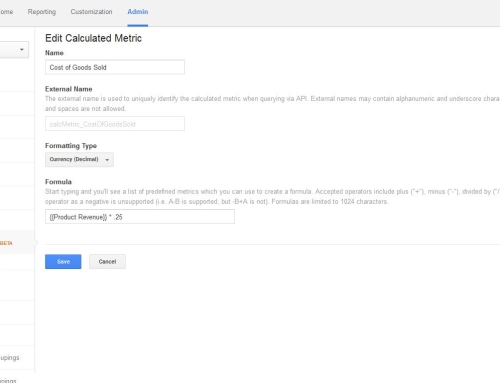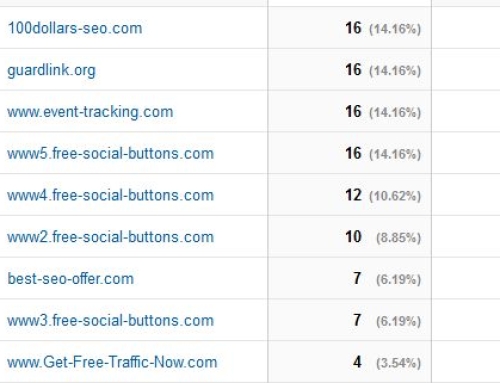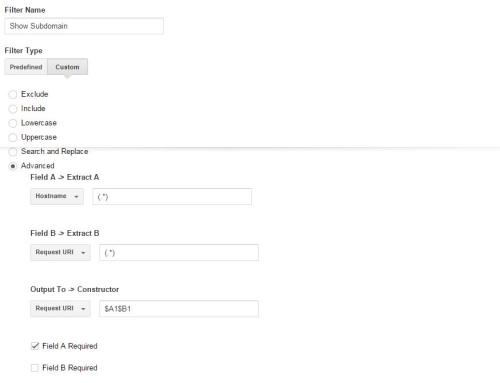
Are you investing or spending on advertising? Here’s how you can tell.
- If you make money on your advertising budget (more revenue than costs (all costs))
- If you lose money, then you simply spent money advertising
There are plenty of advertising channels and opportunities to consider when trying to generate more online business, leads, online sales, etc. Unfortunately, not all are profitable for your or any other business. Why? Well, that’s a whole philosophical conversation which you as a small business owner probably don’t have time for (and we probably couldn’t explain). I ask you to take a leap of faith though and accept that Facebook, Google, Billboards, and TV advertising are not profitable for every business and honestly, many aren’t profitable for your business.
A Brief (two sentence) Review of the History of Advertising
A long time ago, some woman/man figured out that she/he could make money by offering advertising spots within their newspapers, TV shows, large distracting billboards, rocks, etc. Until recently, the results were largely immeasurable so businesses were sold faith, and nothing more. In radio, they call it listeners. In TV, they call it viewers. In the PR (public relations), they call it CAV (calculate advertising value). In all cases, it equates to uncertainty, period.
Spending on Advertising
Any business, with coin in hand, can spend money on advertising. The Googles, Facebooks, Yelps, and newspapers of the world will gladly show your message to readers (or at least make it appear on a page) if you can pay for it. Just the same, just about any advertising agency will be glad to act as the middle man and “manage” it for you.
Enough with the cynical…
Investing in Advertising
Investing in online advertising happens when businesses take calculated, quantitative approaches to generating business though digital media such as search engines, social networks, display networks, email marketing, digital PR, and others. What happens when investing is that the appropriate tracking is put in place to know that if we spend $X on advertising, the direct result in sales, leads, etc. was “Y”.
Comments you don’t hear from people who invest in online advertising include:
- I think the ad is working
- I can’t really tell if people are calling cause of the ad or cause this is my high season
- This new marketing agency is great, I think. It seems like business is picking up
Comments you do hear from people who invest in online advertising include:
- My facebook ad cost me about $325 last week and we made $716 in online sales and got 50 newsletter subscribers
- My google search ads break even in the short term, but I make a lot more money in the long term because the customers come back 30% of the time to buy again.
Why? It’s simple. Those who invest in advertising do so with a requirement of being able to correlate cause and effect. In other words, we’re not going to run an ad unless we know what the goals are and that we can accurately track them.
Direct Response Marketing is Better Than The “Branding” Campaigns You’ve Been Sold in the Past
Direct Response Marketing refers to marketing/advertising activities which are performed to get a specific response. While “Branding” occurs along the way (in many forms), direct response marketers are intentional about calls to action and as importantly, tracking them to the T. We don’t want to run ads that lose money and are committed to finding ad channels which make money and grow businesses.
How to Invest in Advertising
- Determine your goals: Example: I want people to call my sales team and ask about my product/service.
- Setup tracking: Each time someone calls, notify me of how they found me and how much it cost me to get them there.
- Run campaigns and optimize: Spend money on logical advertising solutions and use metrics like cost/conversion, ROAS, and ROI to determine where to direct your hard earned ad budget. When campaign fail, change or stop them. When they succeed, turn up the volume.
So again, are you spending money on advertising or investing in advertising? If you’re not sure, we’d love to hear from you for a free analysis of your digital advertising efforts.






Leave A Comment